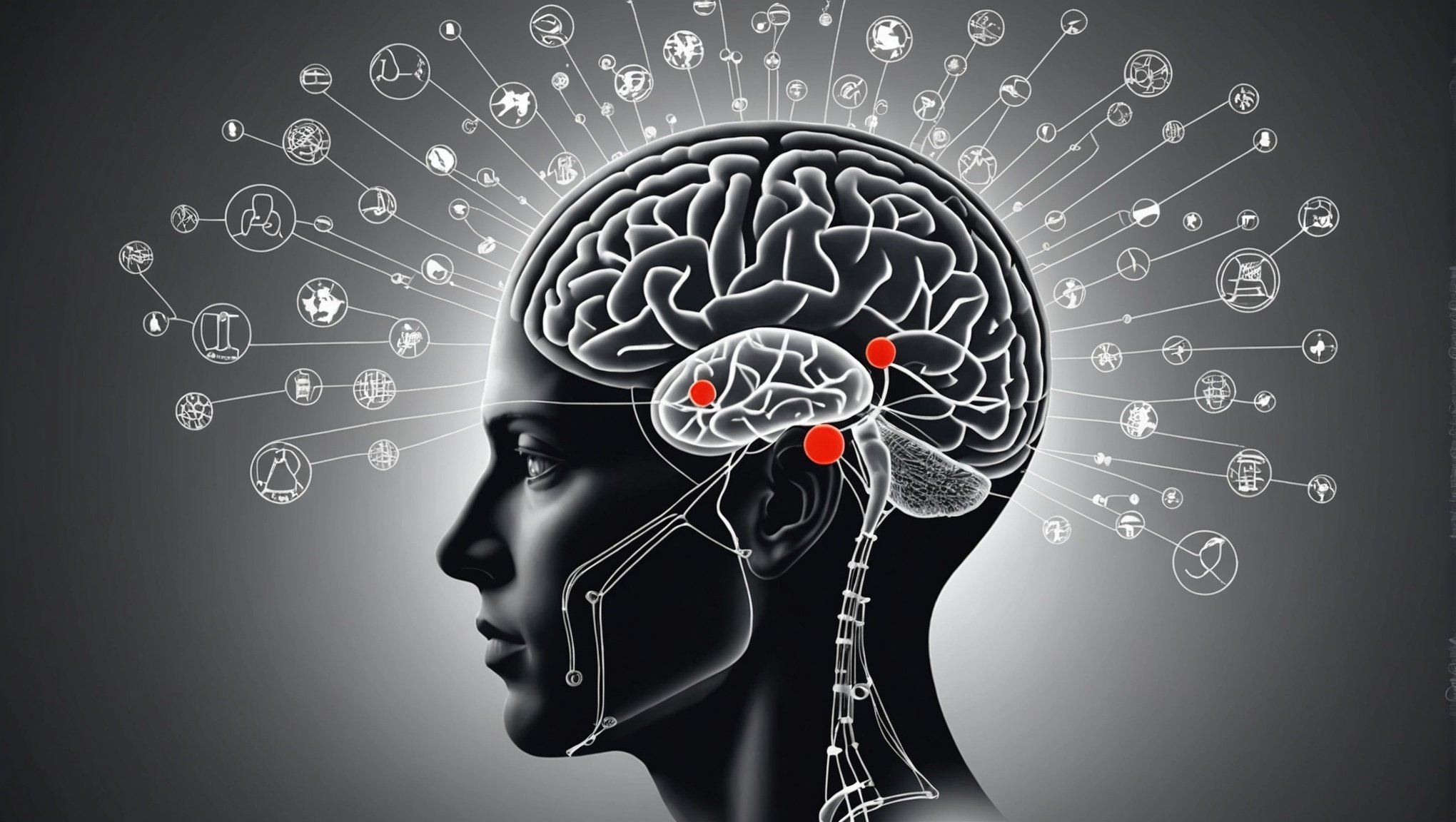In the world of health and fitness, the relationship between the mind and the body has always been a subject of intense interest. The effects of mental stress on physical performance are well-documented, but what happens when you throw cognitive distraction into the mix? How does it impact muscle activation, particularly during complex lifts? These are the questions we’ll be tackling today, drawing upon studies and observations from a wide range of scholarly sources.
The Effects of Cognitive Distraction on Muscular Performance
The relationship between our mental state and our physical performance has been the subject of extensive study. Notably, a research paper published on Google Scholar delved into how cognitive distraction affects muscle activation during complex lifts. The study was based on the principle that our minds and bodies are inextricably linked.
Also read : What are the biomechanical benefits of unilateral training for leg strength?
Monitoring muscle activation during lifting exercises, the researchers utilised surface electromyography (EMG) to measure the root mean square (rms) and mean power frequency (mpf) of the involved muscles. The rms is an indicator of muscle force, while the mpf reflects muscle fatigue. During the study, subjects were asked to perform a lateral raise exercise while being subjected to varying levels of cognitive distraction, such as solving mathematical problems or answering complex questions.
The results suggested a clear correlation between cognitive distraction and decreased muscle activation. Specifically, the rms and mpf values for the lateral deltoid muscle were significantly lower during periods of cognitive distraction. This means that when the subjects were mentally distracted, their muscles were not working as hard or as efficiently.
In parallel : What are the detailed steps to correct imbalances in quadriceps and hamstring strength?
Distraction, Stress and Physical Performance
Stress has always been an enemy of performance. Whether it’s an athlete preparing for a big race or a scholar studying for an exam, stress can sabotage our efforts and reduce our effectiveness. Mental stress can also affect our physical performance, as observed in the aforementioned study.
But how does cognitive distraction play into this? More importantly, how does it affect muscle activation during complex lifts? One way to answer this is by looking at what happens in our bodies during times of stress. One of the key hormones released during stress is cortisol, which has been found to have a negative impact on muscle growth and performance.
However, cognitive distraction is not the same as stress. While stress is a response to a perceived threat, cognitive distraction is more about the mind being preoccupied with other thoughts or tasks. This seems to have a different effect on muscle activation, as seen in the Google Scholar study.
The Connection between Cognitive Distraction and Muscular Activation
So, why does cognitive distraction affect muscle activation? The answer lies in how our brains work. When we perform complex lifts, our brains are in a state of high focus and concentration. We are actively engaging the mental and physical aspects of our bodies to perform the lift correctly.
When a cognitive distraction is introduced, it can disrupt this focus and concentration. The brain’s resources are divided between the task at hand (the complex lift) and the distraction. This can result in a decrease in muscle activation, as the brain is not able to fully engage the muscles needed for the lift.
The researchers in the Google Scholar study observed that the subjects who were distracted displayed less muscle activation, as evidenced by lower rms and mpf values. This suggests that cognitive distraction can indeed have a significant impact on muscle activation during complex lifts.
Implications of Cognitive Distraction
You may be thinking, “What does this mean for me?” The implications of cognitive distraction on muscle activation during complex lifts are quite significant. For those who regularly engage in weightlifting or strength training, it’s crucial to understand the importance of maintaining mental focus during your workouts.
As observed in the study we’ve discussed, cognitive distractions can lead to decreased muscle activation. This means that if you’re lifting while distracted, you might not be getting the most out of your workout.
In addition, lower muscle activation can potentially lead to improper lifting form, which can increase the risk of injuries. So, it’s not just about getting the most out of your workout, but also about protecting your health and safety.
To drive this point home, it’s important to understand that muscle activation is key for effective workouts. Cognitive distractions can compromise this, leading to less effective workouts and potentially even risking your health. So, next time you’re at the gym, remember to keep your mind as focused as your body.
Cognitive Distraction and Its Impact on Different Muscle Groups
The effects of cognitive distractions are not limited to just one muscle group. They can impact different muscles in different ways. A study published on Google Scholar examined the effects of cognitive distraction on muscle activation in the three heads of the triceps brachii, a muscle located at the back of your arm.
Using surface electromyography (EMG), the study measured the root mean square (rms) and mean power frequency (mpf) of the long head, lateral, and medial heads of the triceps brachii during performing a triceps extension exercise. The subjects were asked to perform the exercise while undergoing various levels of cognitive stress, such as mental load, and cognitive distractions, such as answering complex questions.
The results showed a significant decrease in rms and mpf values in all three heads of the triceps brachii when cognitive distractions were introduced. This means that cognitive distractions can reduce muscle activation in the triceps brachii, potentially affecting the efficiency and effectiveness of the exercise. Therefore, it’s not just about the lateral deltoid muscle, as mentioned earlier, cognitive distractions can affect various muscle groups.
Cognitive Distraction and Mental Health: The Mind-Muscle Connection
Cognitive distraction is not only a physical issue, it also has a significant connection to mental health. In a study published in the European Journal of Applied Physiology found that cognitive distraction could exacerbate the effects of mental stress on physical performance during exercise.
The study suggested that cognitive distractions might lead to an increase in cortisol, the stress hormone that is known to have a negative impact on muscle growth and performance. This can further reduce muscle activation during exercise, leading to less efficient workouts, and potentially even muscle fatigue.
An article published on PubMed also found a similar connection between cognitive stress and physical activity. It suggested that cognitive distractions during exercise could lead to less effective workouts, and potentially even mental health issues over time. This is because when our brains are constantly divided, it creates a mental load which can be exhausting and stressful over time.
Therefore, it’s crucial to understand that cognitive distraction isn’t just a fitness issue; it’s also a mental health issue. By managing cognitive distractions, we can not only improve our physical performance but also maintain our mental health.
Conclusion: The Importance of Focus During Exercise
In light of these findings, it’s clear that cognitive distractions can have a significant impact on muscle activation during complex lifts. Whether it’s the triceps brachii or the lateral deltoid muscle, cognitive distractions can reduce muscle activation, leading to less efficient workouts, and potentially even muscle fatigue.
Moreover, cognitive distractions can also exacerbate the effects of mental stress, leading to increased cortisol levels, which can further reduce muscle activation and performance. Therefore, managing cognitive distractions is not only important for physical performance but also for mental health.
For those engaging in weightlifting or strength training, it’s crucial to maintain mental focus during your workouts. If you’re lifting while distracted, you’re potentially not getting the most out of your workout. Furthermore, lower muscle activation can lead to improper lifting form, which can increase the risk of injuries.
In conclusion, the key takeaway is that focus is essential for effective workouts. Cognitive distractions can compromise this, leading to less effective workouts and potentially even risking your health. So, it’s important to remember to keep your mind as focused as your body.













